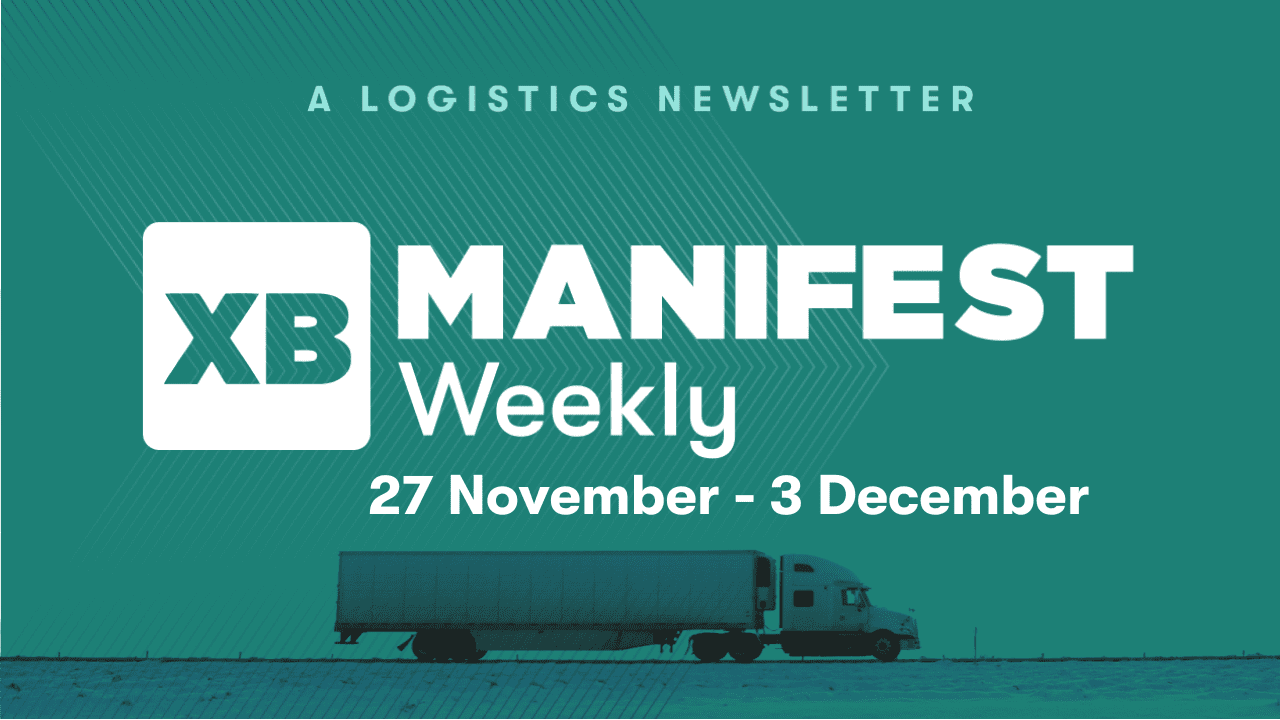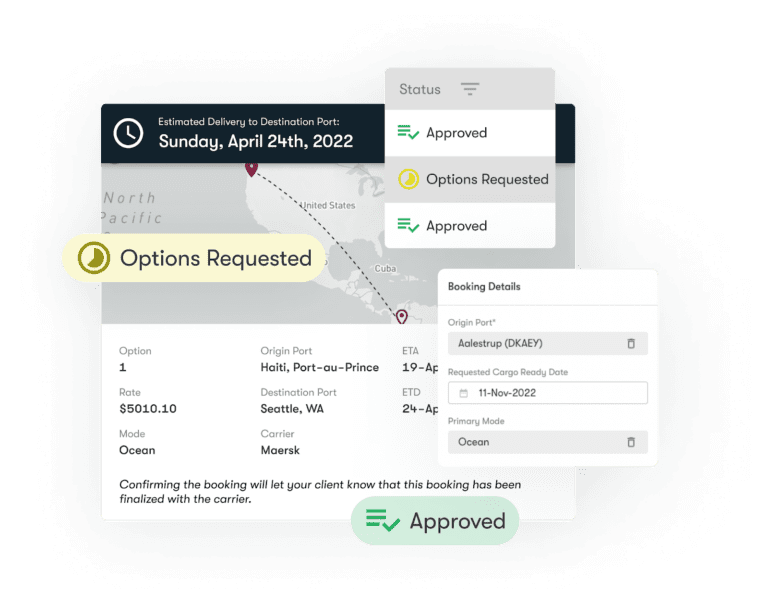This week, we’re covering protests against China’s COVID-19 policies, criticism over the Fed’s response to inflation, and calls to Congress to intervene before rail strike deadline.
IN THE NEWS
Your Weekly Spotlight
In 2020-21, as the world battled COVID-19, supply chains across the globe felt aftershocks. A significant epicenter of world trade, China was shut to the rest of us due to various COVID outbreaks and extreme containment policies. When the Ningbo-Zhoushan port shut down after 1 COVID case was detected, due to the country’s ‘zero-COVID’ policy, it meant 623 Mn tonnes of cargo would be delayed. There were ripples across the world, as ports across the US experienced port congestion and significant delays. This butterfly effect seems to be repeating itself once again in 2022, due to the protests taking place in China currently.
Protests in China over the government’s unrelenting lockdown measures could mean US inflation will get stuck at 4%, as chaos will continue to grip supply chains, according to top economist Mohamed El-Erian. For US citizens, this means increased supply chain shortages and increased prices.
Protests against China’s COVID-19 lockdown policies broke out in Shanghai on Saturday, after locals claimed a deadly apartment fire was unable to be put out due to COVID-19 control measures. Officials denied that was the case, but public protests quickly spread to over 16 locations, including China’s major business hubs Shanghai and Beijing.
Violence broke out at a Foxconn iPhone factory in Zhengzhou, sparked by the company’s response to China’s COVID-19 measures. The disruption could lead Apple to fall short by 6 million iPhone Pro models this year, causing the tech giant’s stock to slip 2% on Monday.
TOP HITS THIS WEEK
From The Manifest
This Week at Logixboard
We’re streamlining your shipment bookings process
With our upcoming Bookings feature, your customers can request, review, and approve bookings directly in Logixboard. Skip the back-and-forth emails and get your customers better options faster.
SUMMING IT UP
Key Takeaway
Supply disruptions like those unfolding in China could last for several years and have the potential to hammer the economy with 1970s-style stagflation. Inflationary pressures today have shifted to service prices and wages, which are both largely affected by supply-chain issues.
As a result, inflation may not get back to 2% quickly. The protests likely wouldn’t affect the Fed’s decision to keep rates higher for longer, predicting the central bank will hike by 50 basis points in December, followed by a 25 basis-point hike at its January meeting. For the end consumer, this means higher prices for essential goods. For the supply chains, this may result in increased fuel costs and hiked transportation prices.
WHAT’S HAPPENING AROUND THE WORLD
Highlights
- Despite hiking rates ahead of the US, several countries must still battle inflation according to Federal Reserve Vice Chair Lael Brainard. The Federal Reserve has come under criticism for waiting until March 2022 to raise interest rates in response to the burst of inflation in the wake of the pandemic, but a top U.S. central banker noted that even countries that hiked earlier did not avoid the global rise in prices.
- More women are choosing to be truck drivers, filling in the driver gap. In 1999, there were about 3.1 million truck drivers, and 4.9%, or 152,684, were women. In 2021, there were nearly 3.5 million truck drivers, and 7.9%, or 275,473, were women, according to the Department of Labor.
- New supply chain disruptions are popping up due to droughts. Summer 2022 illustrated just how sensitive some key waterways are to droughts – the Mississippi, Yangtze, and Rhine rivers all experienced serious bottlenecks. By 2050, drought could affect 75% of the global population, the United Nations (UN) says.
- Shortages of essential drugs like Adderall, and amoxicillin highlight a possible lack of transparency in Big Pharma. Critical shortages of the ADHD drug Adderall and the antibiotic amoxicillin have left families reeling. Consumers are at the mercy of drug companies when it comes to learning about what is causing the shortages, and how and when they might be resolved, raising questions about transparency.
- The chip shortage situation really depends on what chips are being used for. After an extended period, starting during the pandemic, reports seem to indicate that now there is actually too much supply. Do we really have too many chips though? Semiconductors are not a homogeneous commodity; they are unique to specific products and technologies. So depending on the application they are needed for, chip shortage might still be the real deal.
ON OUR RADAR
Trending
Concerns of a rail strike have been plaguing the US for weeks now, as workers demand higher salaries and increased sick days. The Biden administration has been in negotiations with various railroads and unions involved, enamoring to broker peace and reach an agreement. If a rail strike does happen, it can lead to massive delays, supply chain disruptions, and increasing prices for the industry and the end consumer collectively.
As the rail strike deadline nears, President Biden calls on Congress to intervene. Railroad workers would need to ratify union contracts before a Dec. 9 strike deadline to avert a rail shutdown, renewing pressure on Congress to intervene.
With less than two weeks until a railroad strike deadline, President Biden called on Congress on Monday to impose a deal negotiated with help from his administration this year to avert a shutdown of the country’s freight railroads. That deal was recently voted down by four railroad unions representing most of the union members. The rail workers have said they are angry and frustrated that the deal lacked paid sick days or other substantial changes to an attendance policy that penalizes workers for taking time off while they are sick.
A rail strike could threaten the nation’s water supply, halt passenger rail travel and trigger major disruptions to the US supply chain during the height of the holiday season, potentially worsening inflation. Some tech companies have begun rerouting cargo shipments from railroads to trucks in preparation for a potential shutdown already.
All 12 unions need to vote individually to ratify their contracts unless Congress imposes a contract. If one union moves to strike, all of the unions — which represent more than 115,000 rail workers — would probably move in solidarity, triggering an industry-wide work stoppage. Meanwhile, Union officials have recently said it’s looking increasingly unlikely that the unions and major rail freight carriers would reach a deal over lingering issues before a Dec. 9 strike deadline. The President’s appeal to Congress comes as concern over a rail strike plagues trade, business, and life across the US. It remains to be seen how things will finally play out before the deadline.






